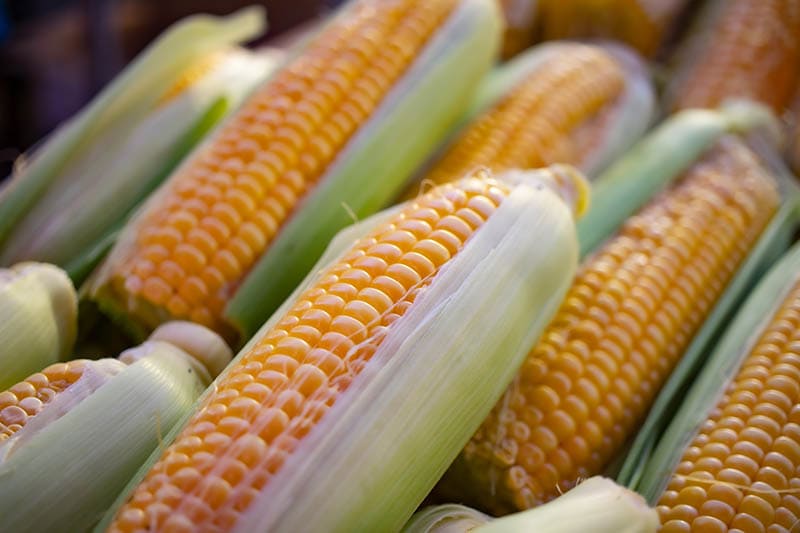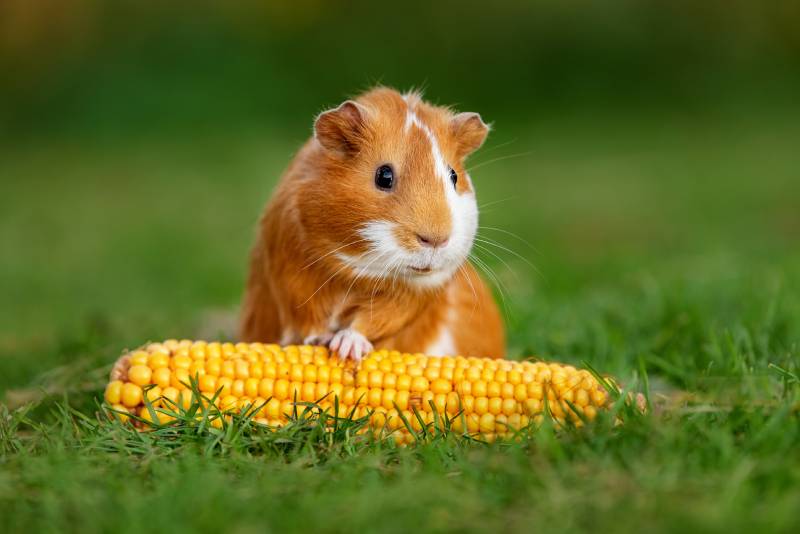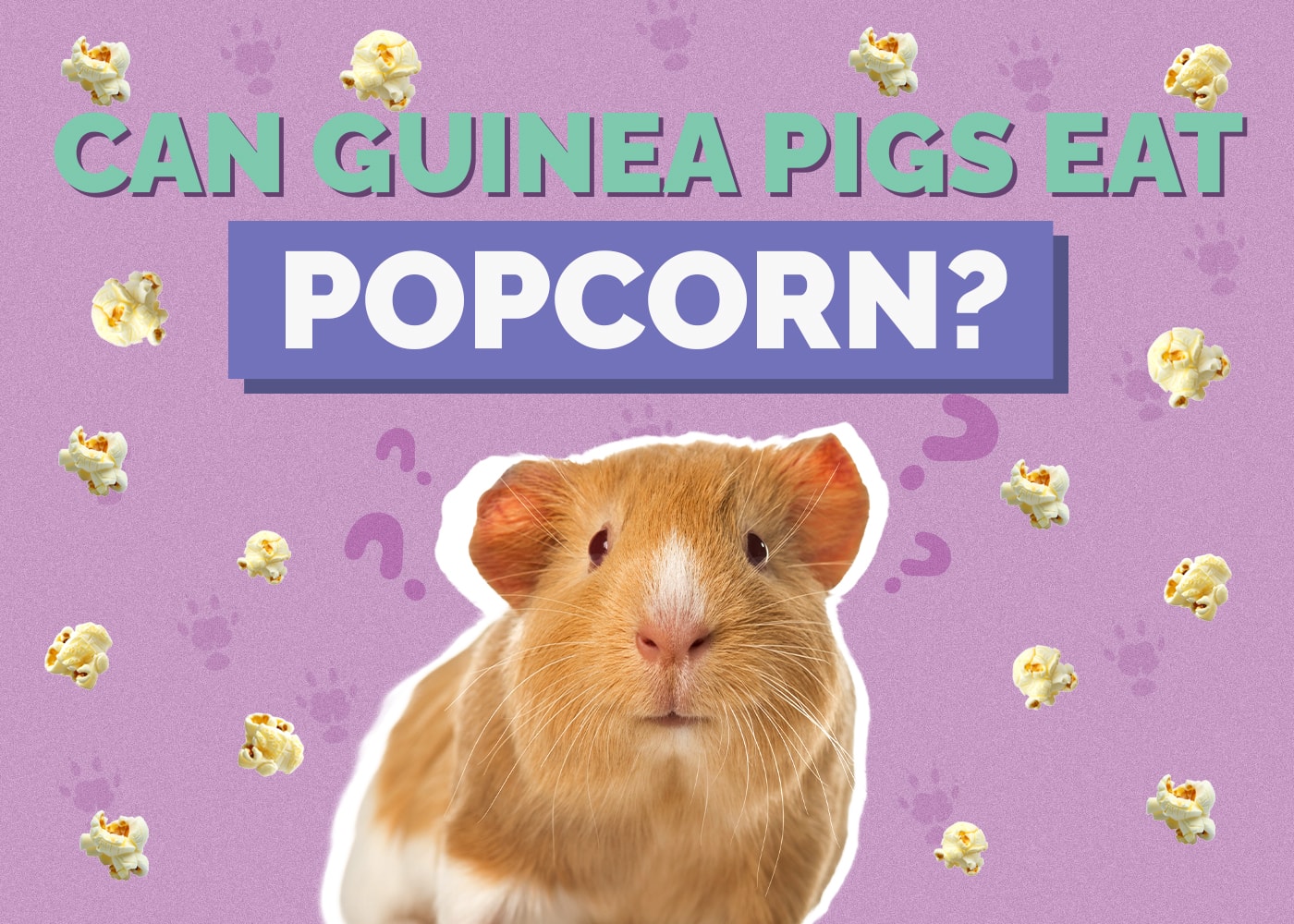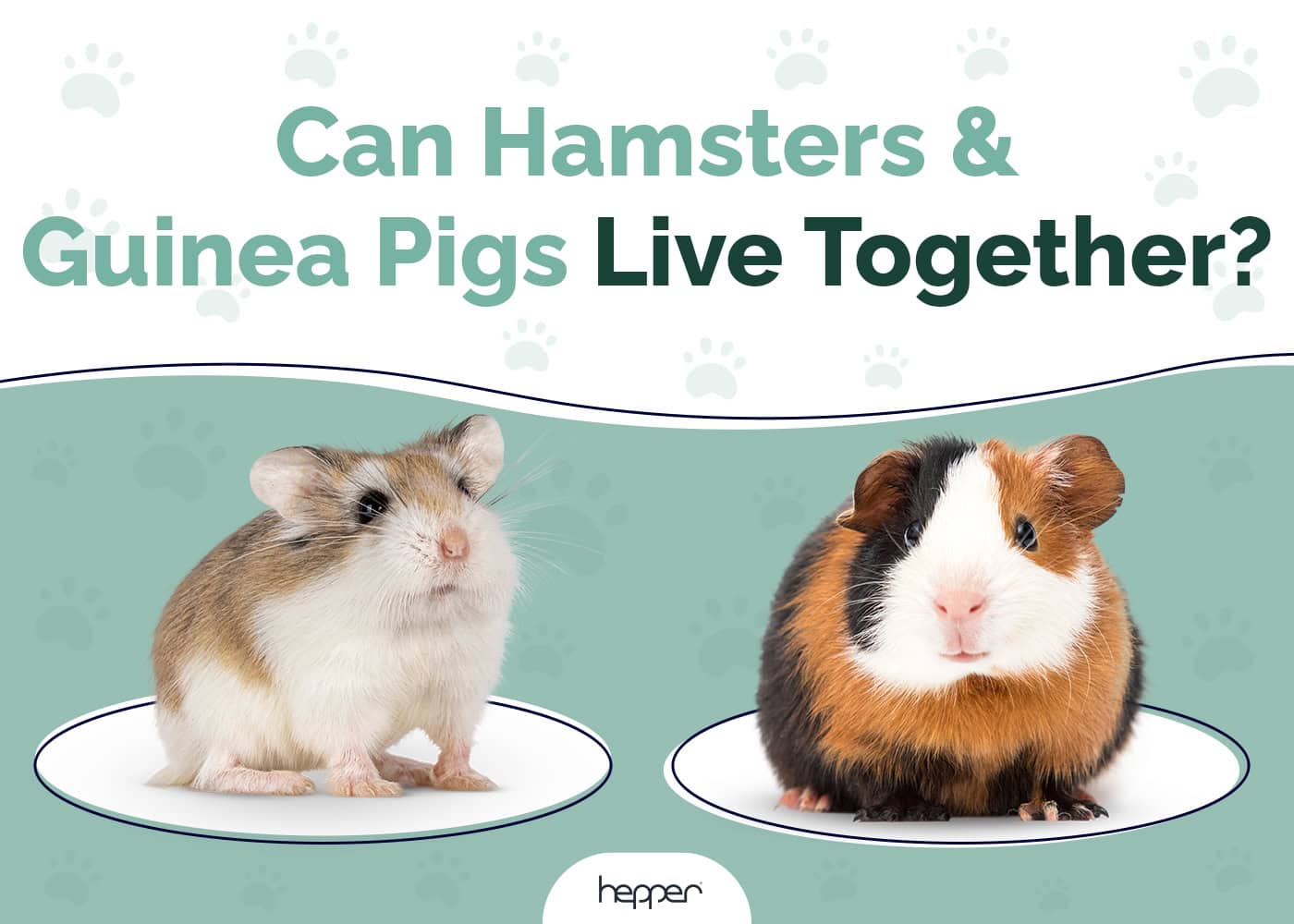Can Guinea Pigs Eat Corn on the Cob? Vet-Approved Diet, Benefits, & Risks

Updated on

Guinea pigs are herbivores and eat plants and plant-based foods, and they need fiber to keep their guts moving and teeth short. Vitamin C is also incredibly important, as Guinea pigs don’t produce it. Their diet should be made up of mainly hay or grass, fresh greens and vegetables, and pellets. Fortunately, corn on the cob is an example of a safe vegetable you can share with your Guinea pig.
However, you must be aware that too much corn can be harmful as it is high in starch. So, let’s look at exactly how your Guinea pig can enjoy this vegetable.
What Parts of Corn on the Cob Can You Feed Your Guinea Pig?
The great thing about corn on the cob is that it is incredibly versatile, and there are many parts your Guinea pig can enjoy. First, you must share corn on the cob raw since Guinea pigs aren’t designed to digest cooked food. Not only does cooking corn on the cob remove some of the nutrients, but it could also cause your Guinea pig stomach pains and diarrhea.
- Kernels: These should be fed only a couple of times weekly as they are high in starch. Always offer your Guinea pig fresh vegetables, and avoid canned kernels as they’re generally high in salt.
- Husk (outside green leaves): The inner husk can be given to your piggy daily and is a healthy option as its nutrient composition is similar to grass or hay. However, the outer husk should be avoided since it’s in contact with more pesticides.
- Corn silk or hairs: Your Guinea pig can enjoy these daily as they’re packed with vitamins and minerals.
- Stalks: They make excellent chew toys for a day or two because your Guinea pig won’t finish the whole thing since the middle is quite hard.
- Cob: Just like us, Guinea pigs don’t eat this inner part, and it should be thrown away, however, munching the kernels straight from the cob can be an excellent way for them to keep their incisors healthy.

Benefits of Corn on the Cob
There are several benefits to serving corn on the cob, and while it might not be as nutritious as dandelions, kale, and collard greens, it still provides essential nutrients.
| Nutrient | Amount
(per 100g) |
| Calories | 86 kcal |
| Protein | 3.27 g |
| Fat | 1.35 g |
| Vitamin C | 6.8 mg |
| Calcium | 2mg |
| Fiber | 2 g |
| Sugar | 6.3 g |
Corn is an excellent source of fiber, which is found in the kernels, husk, and silk. It contains potassium, which controls blood flow and regulates fluid in the body. If your Guinea pig is skinny, corn will help them gain weight. It also contains vitamin B6, some folate, and antioxidants which are beneficial for eye health and vision and protect the body from diseases and infections.
There is a tiny amount of vitamin C in corn compared to other veggies, which is another reason not to feed them too much, as they will need to get their vitamin C from somewhere else, and you don’t want to fill them up on corn!

Are There Any Risks to Eating Corn?
While corn isn’t toxic, some health risks are associated with eating too much. The main risk is that corn on the cob isn’t as nutritious as other options. Therefore, Guinea pigs should enjoy it occasionally so they don’t miss out on essential nutrients.
Corn is also high in sugar, which can lead to digestive problems. If they continue to eat too much, it can lead to health issues like obesity and heart problems. You can avoid this by feeding your Guinea pig a diverse, nutritionally balanced diet.
Why a Balanced Diet Is Important for Your Guinea Pig
Without the right balance of fiber, vitamins, and minerals, your Guinea pig will likely develop problems with their teeth, stomach, and overall health.
- Tooth health: Guinea pigs need things to chew on because their teeth are constantly growing. If they don’t have enough grass or hay to file down their teeth, they can become overgrown, causing painful spikes that prevent them from eating.
- Gut health: Guinea pigs require lots of fiber in their diet, and a lack of fiber can cause their guts to slow or stop altogether (gut stasis). They get most of their fiber from grass or hay.
- Vitamin C: A lack of vitamin C in your Guinea pig’s diet causes scurvy, so they must get it through a healthy helping of fresh greens that are high in vitamin C.

How to Serve Corn on the Cob
Shredding the corn from the cob husks will make it easier for your Guinea pig to eat it. However, you don’t have to do this if you’re giving it to them as a treat and for enrichment purposes.
You can also leave the cobs out before storing them in an airtight container or Ziplock bag; this will cause them to dry out like hay. And remember, only feed your Guinea pig raw corn on the cob! Also, avoid freezing the corn as it affects its starch, making it unsuitable for sharing with your Guinea pig.
Final Thoughts
Corn on the cob is versatile and can be eaten and enjoyed in multiple ways. Your Guinea pig can enjoy fresh, raw corn on the cob and can eat most of it. Eating it has some benefits, but only if consumed in moderation. Corn on the cob is not the most nutritionally beneficial vegetable, but your Guinea pig can still enjoy it as part of a healthy, balanced diet.
You Might Also Be Interested In:
Featured Image Credit: Kuttelvaserova Stuchelova, Shutterstock











